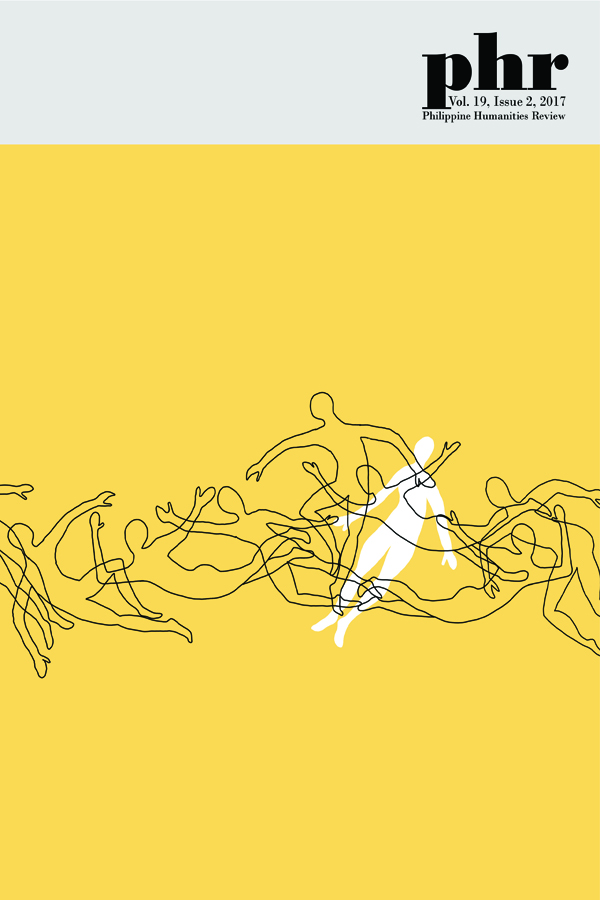Alegorya at Talinghaga: Artikulasyon ng Dalumat ng “Kaluluwa” sa mga Pelikula ng <em>Shake, Rattle, and Roll</em>
Abstract
ABSTRAK
45 episodyo ng Shake, Rattle, and Roll—ang pinakamatagumpay na serye ng pelikulang katatakutan sa bansa—sampu ang tuwirang nagtatampok sa “kaluluwa.” Sa sanaysay na ito, layon ang pagbibigay-tuon sa iba-ibang lente at perspektiba na kalakip sa larawan at paglalarawan sa “kaluluwa,” mula sa “katutubong sistema ng paniniwala” sa Pilipinas hanggang sa tala ng mga misyonero at sa pagharaya ng Judeo Kristiyanong paniniwala.
Kung iigpawan naman ang mekanikal at mapanakop na dalumat sa “panahon,” nagsisilbing talinghaga ang “kaluluwa” na bumabalik at nagpaparamdam mula sa “mahalaga” at “makasaysayang” yugto mula sa noon patungo sa kung ano ang nasa ngayon. Binibigyang diin ng prosesong ito ang tila pagkakatulad ng noon sa ngayon, kakaiba sa kronolohiko at maka-kalendaryong pagtingin sa panahon. Sa ganitong konteksto, babasahin ng sanaysay ang hinahabing konstelasyon ng mga diskursong pampelikula hinggil sa patuloy na alegorya at multo ng “bayan.”
ABSTRACT
Among the 45 episodes of Shake, Rattle, and Roll—the most successful horror film series in the Philippines—ten have chosen to feature and dramatize the presence of “kaluluwa.” This essay articulates the various frames and perspectives attached to the presentation and (re)-presentation of “kaluluwa,” from the Philippine “indigenous belief system” to missionary chronicles up to Judeo Christian imaginings.
Looking beyond the homogenous and mechanical concept of “time,” the “kaluluwa” serves as a filmic trope that keeps coming and going back from the “eventful” and “historical” past up to the present period. This process highlights the coevalness of the past with the present, as opposed to the calendrical and chronological conception of time. In this context, the essay also closely reads the woven constellation of cinematic discourses on the allegories and specters of the “Philippine nation.”
KEYWORDS: pelikulang katatakutan (horror cinema), katutubong sistema ng paniniwala (indigenous belief systems), kaluluwa, panahon at espasyo (time and space), postkolonyalismo (postcolonialism)


